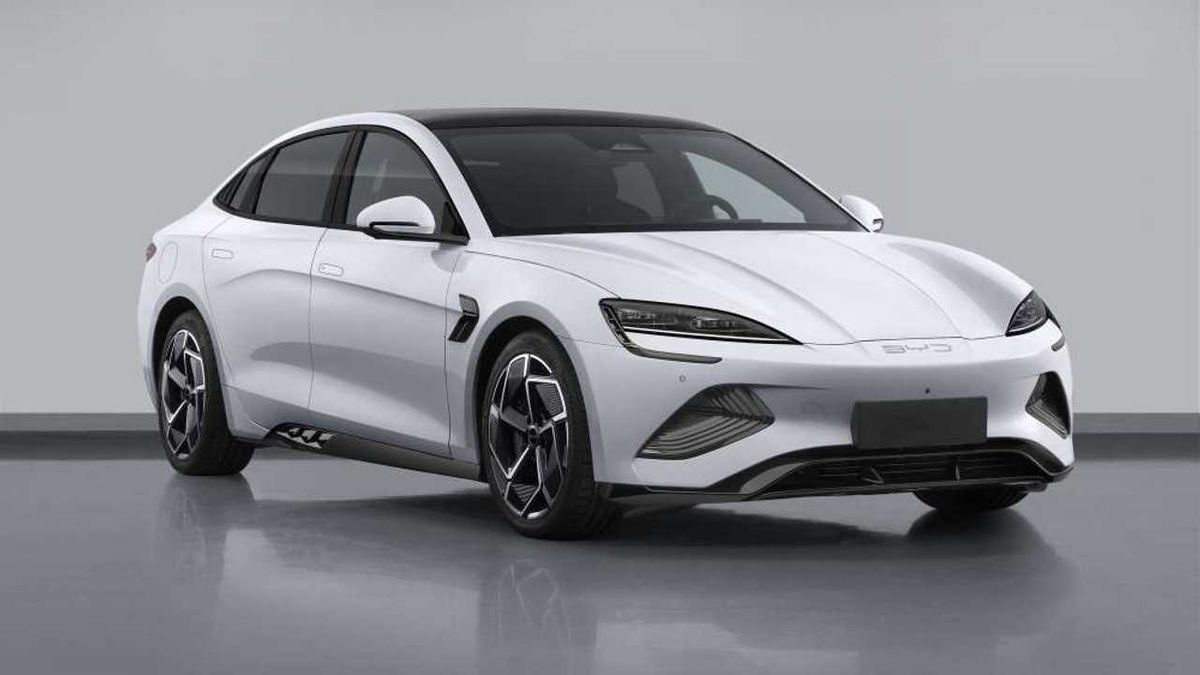EU countries gave their approval this Friday to the adoption of high customs duties on Chinese electric carsan initiative that immediately prompted an angry response from the Asian giant.
In a long-awaited meeting in Brussels, 10 countries voted in favor, 12 abstained and five voted against this initiative, which provides for provisional additional tariffs of up to 36% on Chinese electric vehicles, which would be added to the already existing rate. of 10%.
The plan is to impose additional tariffs on the largest Chinese manufacturers: 17% on BYD, 19.3% on Geely and 36.3% on SAIC. The remaining manufacturers will be assessed an average additional rate of 21.3% if they cooperated with the subsidy investigation, and 36.3% otherwise. Thus, in certain cases, customs duties could amount to more than 46%.
In an official note mentioned by the state channel CCTV, the Chinese Ministry of Commerce indicated that the country “firmly opposes the unfair, non-compliant and unreasonable protectionist practices of the EU in this case.”
In turn, the Chinese Chamber of Commerce in the EU expressed “its deep disappointment with the result of the vote and dissatisfaction with the adoption by the EU of protectionist trade measures.”
“We encourage the EU (…) to delay the implementation of these tariffs and prioritize the resolution of trade disputes and tensions through consultations and dialogue,” the entity stated.
“The decision is not constructive and could damage trade and economic relations between the EU and China, harming European companies and the interests of consumers,” added the Chinese manufacturer Geely.
The European Commission, the EU’s executive arm, had proposed in July imposing high provisional tariffs on Chinese manufacturers, over suspicions that these firms benefit from state aid.
France, Italy and Poland voted in favor of the measure, while Germany and Sweden voted against it. Spain, which had criticized the agreement due to the risk of a trade war with China, chose to abstain.
The head of the Spanish government, Pedro Sánchez, had called on the EU to “reconsider” the initiative and even traveled to China.
The five countries that voted against were not able to block the initiative.
The panorama leaves the final decision in the hands of the European Commission, which in a statement congratulated itself this Friday on having “obtained the necessary support from the Member States.” The Commission highlighted that Brussels and Beijing continue to dialogue to try to find a negotiated solution.
These tariffs would become final within a period of five years from October 31.
The idea of these customs duties has pitted France and Germany, the bloc’s two largest economies, against each other.
France, on the one hand, maintains that the measure is necessary to level competition, since EU car manufacturers are at a clear disadvantage compared to their Chinese competitors.
However, Germany, known for its strong automotive industry and whose largest manufacturers have invested heavily in China, warned that the EU must avoid harming itself and called for negotiations to continue with Chinese authorities.
In this sense, the German Minister of Finance, Christian Lindner, reacted quickly by saying that the Commission “should not unleash a trade war”, and instead seek “a negotiated solution” with Beijing.
The German group Volkswagen, the largest European manufacturer, denounced this Friday’s initiative, calling it a “bad approach” for the competitiveness of the continent’s industry. “We encourage the European Commission and the Chinese government to constructively continue the ongoing negotiations, with a view to a political solution,” the company said in a statement.
China has threatened to retaliate against the tariffs and has launched investigations into brandy, dairy and pork products imported from European countries.
The Asian giant tried to stop the initiative and insisted on resolving the problem through dialogue, but so far the talks have failed to lead to an agreement that satisfies either party.
The European Commission has reiterated that any tariffs could be removed if China addresses the EU’s concerns.
Trade tensions between China and the EU are not limited to electric cars: the bloc opened investigations into Chinese subsidies for solar panels and wind turbines.
Source: Ambito




